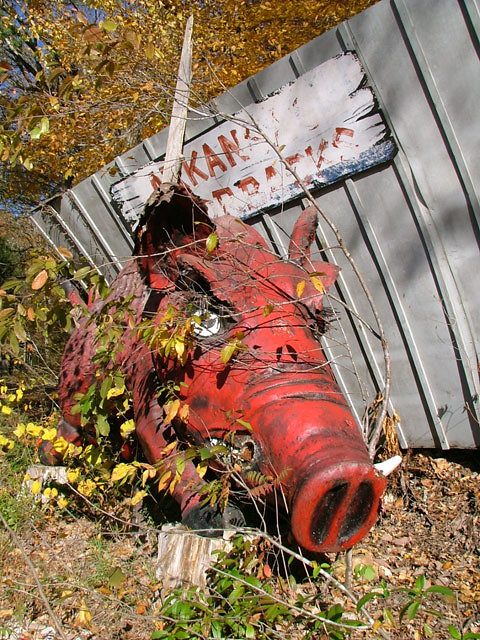Dill Carver wrote:Linda Lee wrote:Bostonian's would call that canned beef.
Thanks Linda
Although, I'm thinking now of having my character coming from somewhere less urban/cosmopolitan and more of a rural, remote origin to make the character more insular and less worldly-wise. An American/British half-blood here at work has suggested the Ozarks region of Missouri as a good location of origin for a character who might have a limited international experience and knowledge (especially in the 1940’s).
I’m not sure if I trust her judgement, I think I’ve been to the USA more often than she has.
No offence to anyone intended, but the Ozarks region of Missouri for a stereotypical someone who is less than worldly-wise in 1940? Good choice or wide of the mark?
I think the Ozarks would be a good choice for someone who is less than worldly-wise. Also, Appalachia, where I hail from.
Li'L Abner by Al Capp may give you some grist for you mill: https://en.wikipedia.org/wiki/Li%27l_Abner
Dogpatch[edit]
Exceeding every burlesque stereotype of Appalachia, the impoverished backwater of Dogpatch consisted mostly of hopelessly ramshackle log cabins, "tarnip" fields, pine trees and "hawg" wallows. Most Dogpatchers were shiftless and ignorant, the remainder were scoundrels and thieves. The menfolk were too lazy to work, yet Dogpatch gals were desperate enough to chase them (see Sadie Hawkins Day). Those who farmed their turnip fields watched "Turnip termites" swarm by the billions every year, locust-like, to devour Dogpatch's only crop, (along with their homes, their livestock and all their clothing.) The local geography was fluid and vividly complex; Capp continually changed it to suit either his whims or the current storyline. Natural landmarks included (at various times) Teeterin' Rock, Onneccessary Mountain, Bottomless Canyon, and Kissin' Rock, (handy to Suicide Cliff). Local attractions that reappeared in the strip included the West Po'k Chop Railroad, the "Skonk Works"—a dilapidated factory located on the remote outskirts of Dogpatch, and the General Jubilation T. Cornpone memorial statue.
In the midst of the Great Depression, the hardscrabble residents of lowly Dogpatch allowed suffering Americans to laugh at yokels even worse off than themselves.[24] In Al Capp's own words, Dogpatch was "an average stone-age community nestled in a bleak valley, between two cheap and uninteresting hills somewhere." Early in the continuity Capp a few times referred to Dogpatch being in Kentucky, but he was careful afterwards to keep its location generic, probably to avoid cancellations from offended subscribing Kentucky newspapers. From then on, he referred to it as Dogpatch, USA and did not give any specific location as to excatly where it was supposed to be located. Humorously enough, many states tried to claim ownership to the little town (Georgia, Tennessee, Alabama, etc), yet Capp would not budge. He left it at Dogpatch USA so there would be no headaches and problems. Like the Coconino County depicted in George Herriman's Krazy Kat and the Okefenokee Swamp of Walt Kelly's Pogo, Dogpatch's distinctive cartoon landscape became as identified with the strip as any of its characters. Later, Capp licensed and was part-owner of an 800-acre (3.2 km2) $35 million theme park called Dogpatch USA near Harrison, Arkansas.
Memphis Trace

.jpg)


